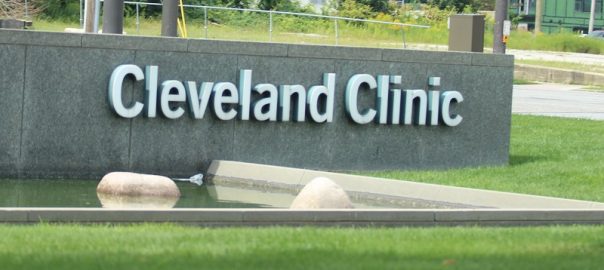(From the Cleveland Clinic)
Cleveland Clinic plans to begin using drones to deliver certain medications directly to patients’ homes, starting in 2025.
Initially, the service will be used to send specialty medicines and other prescriptions to patients’ homes from more than a dozen Cleveland Clinic locations across Northeast Ohio. Eventually, the program will expand to include delivery of lab samples, prescription meals, medical and surgical supplies, and items for hospital-at-home services. Most of these shipments would typically be sent via automotive courier or ground delivery.
“We are always looking for solutions that are cost effective, reliable and reduce the burden of getting medications to our patients,” said Bill Peacock, Chief of Operations at Cleveland Clinic. “Not only are deliveries via drone more accurate and efficient, the technology we are utilizing is environmentally friendly. The drones are small, electric and use very little energy for deliveries.”
Cleveland Clinic will use drone company Zipline’s Platform 2 system, which can complete precise deliveries to dense urban areas, and completes a 10-mile delivery in about 10 minutes. Docks for the drones and loading portals will be added at several of Cleveland Clinic’s facilities in Northeast Ohio. When a prescription is ready, a Cleveland Clinic technician will load the drone. It will then autonomously undock, fly at 300 feet to a patient’s home, and deploy an autonomous delivery droid that steers to the correct location and drops off its package to areas as small as a patio table or the front steps of a home. The drone will then fly back and dock itself. Patients will be able to track their deliveries in real time.
“Zipline has been focused on improving access to healthcare for eight years. We’re thrilled to soon bring fast, sustainable and convenient delivery to Cleveland Clinic patients,” said Keller Rinaudo Cliffton, Co-Founder and CEO of Zipline.
In 2024, Cleveland Clinic will begin work with government officials to ensure compliance with all safety and technical requirements for drone delivery and will start to install the docks and loading portals for the drone system.
“This technology will help us achieve our goal to expand our pharmacy home delivery program and provide easier, quicker access to prescribed medications in our communities,” said Geoff Gates, senior director of Supply Chain Management at Cleveland Clinic.
The system and aircraft are designed with multiple layers of safety including preflight inspections and real-time monitoring by operations teams. Zipline began delivering medical products in 2016. Today, it operates in seven countries covering millions of people per day.
Cleveland Clinic will share more information about this delivery program as it gets closer to becoming operational.
